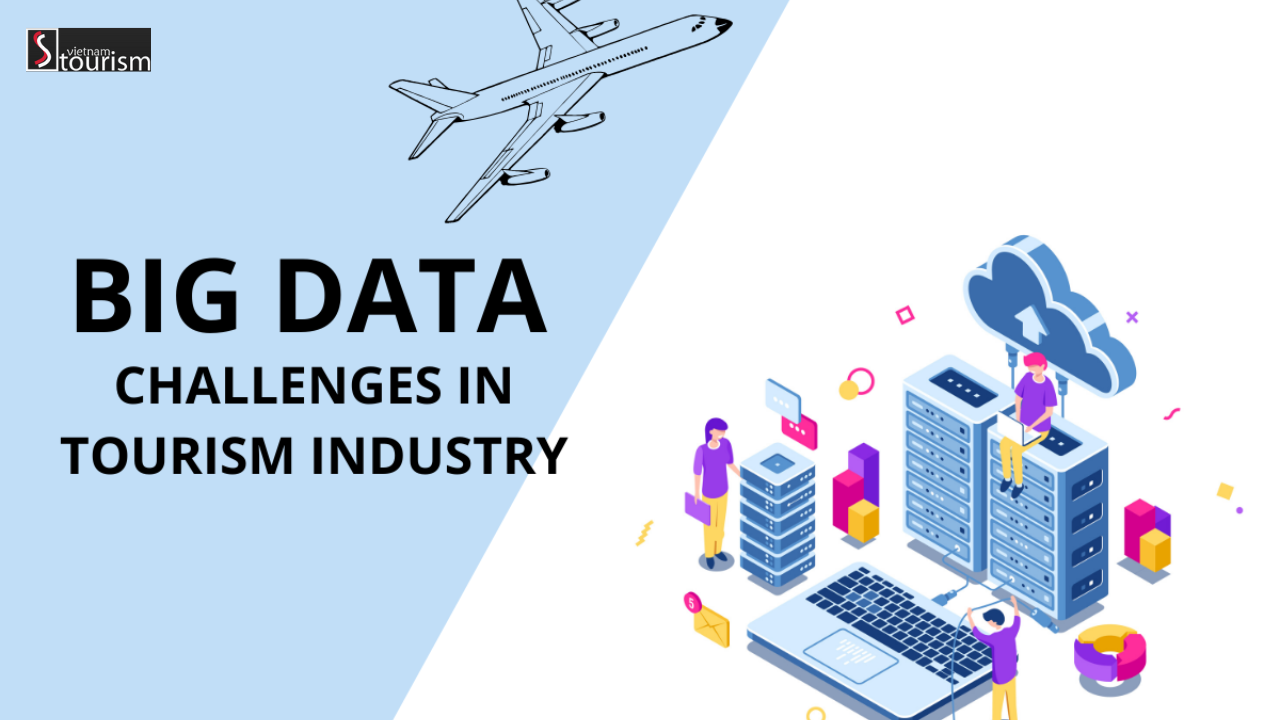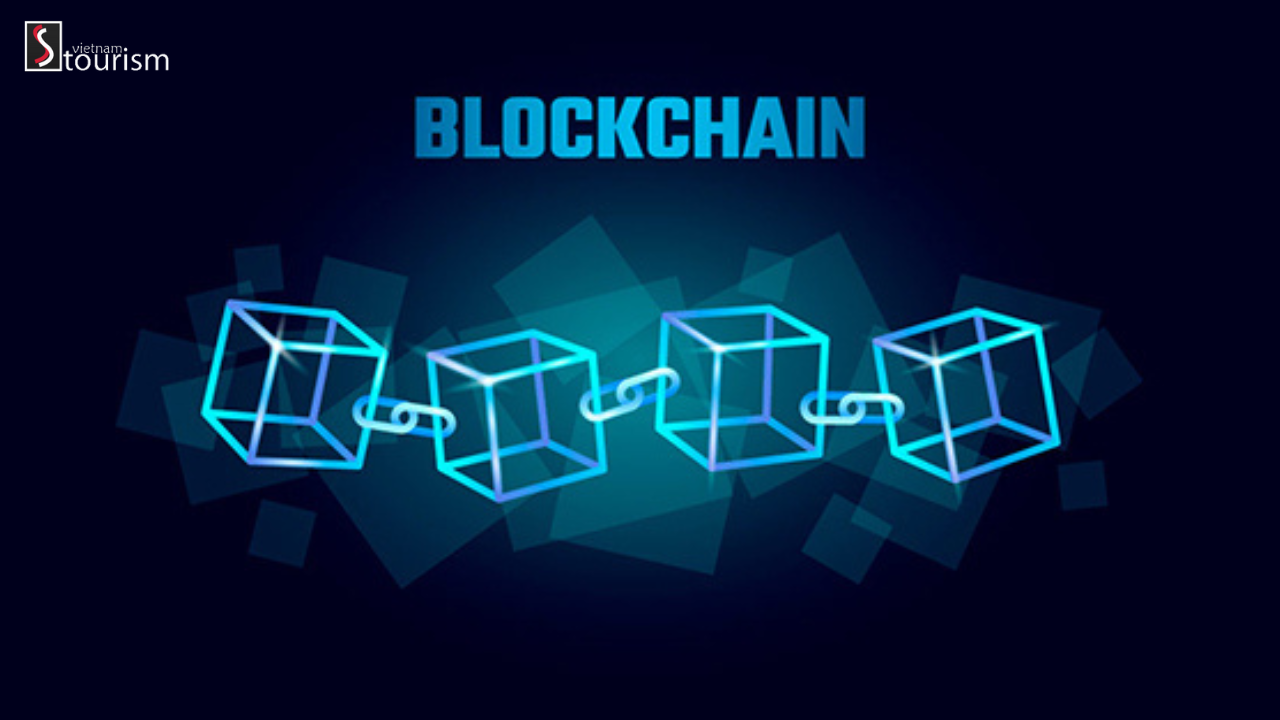.png)
In today's digital era, the tourism industry faces formidable challenges, from managing intricate data to ensuring the security of personal information and mitigating environmental impacts. At the intersection of market dynamics and technology, Blockchain technology has emerged as a robust solution to tackle these issues. In this article, we will explore how Blockchain technology is being applied to address major concerns such as data management, personal information security, waste reduction, and resource optimization.
The tourism sector confronts significant challenges, demanding high standards of information management and accessibility:
Data Management: The rapid growth of the tourism industry has generated vast amounts of customer, itinerary, and booking data. This data needs to be collected, stored, and processed securely and efficiently to ensure that personal information remains confidential and enhance customer experiences.
Security: Sensitive customer information, including bank account details, credit card numbers, and personal profiles, faces the risk of theft and misuse. Ensuring the security of this data is paramount, particularly concerning online payments and transactions.
Transaction Costs: During international transactions or credit card payments, service providers in the tourism industry contend with high transaction fees. These fees inflate the actual value of transactions, decrease profits, and lead to higher ticket prices and service costs for end customers.
Environmental Impact: The tourism sector generates substantial waste, from discarded items to food waste. Additionally, transporting tourists to destinations consumes significant energy, resources, and natural assets, affecting the environment and sustainability of tourist areas.
These challenges necessitate innovative solutions and the application of modern technology, such as Blockchain technology, to help the tourism industry overcome difficulties, optimize data management, enhance security, reduce transaction costs, and minimize negative environmental impacts.

Blockchain technology is a secure, decentralized ledger system built on a chain of linked data blocks. Each block contains transaction information and a hash of the previous block, forming an immutable chain stored across multiple computers on the network, not controlled by a single entity. Here are some advantages of Blockchain technology:
Transparency: Every transaction is publicly recorded on the Blockchain, allowing everyone in the network to review this information. This transparency enhances trust and credibility in all transaction processes, benefiting both users and organizational entities.
Immutability: Each transaction is confirmed through strong encryption, preventing any alterations to the data stored in previous blocks. Once data is added to the Blockchain, it becomes unchangeable, ensuring data integrity.
Security: Data within Blockchain blocks is encrypted and stored across multiple computers on the network, making it challenging for any single point to be vulnerable to attack. This decentralized system prevents cyber-attacks and unauthorized access, providing high-level security for stored data.

Instead of storing data on a centralized server, Blockchain divides data into blocks. Each block contains information about a set of transactions or tourism events. Blocks are linked to the previous block through a unique hash, creating an unchangeable chain. If someone attempts to alter information within a block, the hash of that block changes, disrupting the chain and clearly indicating an error. Each new transaction is confirmed and added to the end of the chain, creating an immutable history of tourism transactions.
Example: A hotel booking system employs Blockchain to store customer reservation details, including guest names, check-in and check-out dates, the number of adults and children, and specific requests. Each booking detail is added to a new block in the Blockchain. When guests arrive, their identification information is verified and cross-referenced with the Blockchain data, ensuring they receive the requested accommodations without external interference or fraud. This establishes a reliable and secure travel experience for customers.
In the tourism industry, securing customers' personal information is paramount. Blockchain ensures privacy and data security through encryption and verification mechanisms. Here's how Blockchain technology tackles security issues:
When a transaction occurs, relevant details such as credit card numbers, account numbers, or personal information are encrypted. This encryption transforms the information into unreadable strings of characters without the decryption key. This prevents anyone except authorized individuals from viewing or modifying the information.
Example: A travel company utilizes Blockchain to store customer payment information. When customers make payments using credit cards, the payment details, including credit card numbers, cardholder names, and expiration dates, are encrypted and stored on the Blockchain. Only authorized payment systems can decrypt this information to confirm the payment. This prevents unauthorized access and ensures the safety of payment transactions in the tourism industry.
In the tourism sector, managing and minimizing negative environmental impacts pose significant challenges. Blockchain is utilized to record and confirm information regarding water and electricity consumption as well as waste generation. This data, stored in unchangeable blocks, facilitates efficient resource management and waste reduction.
Blockchain is employed to record water and electricity usage in beach resorts. Each time a garden needs watering or an electrical device is used, the consumption data is recorded in a new block. These blocks are linked together, forming an unchangeable data chain. Thanks to this data, resorts can track water and electricity consumption over time, allowing them to make intelligent decisions about resource usage and energy conservation.
Information about waste generated from tourism activities is also recorded and confirmed using Blockchain. Each time a tourist site collects and processes waste, this information is added to the Blockchain chain. This helps monitor waste production from tourism activities and evaluate the effectiveness of waste management practices. If there is a sudden increase in waste generation, management can quickly identify the cause and implement corrective measures.
Example: A beach resort uses Blockchain technology to record water usage for irrigation and electricity consumption for lighting and air conditioning systems. This information is added to blocks in the Blockchain every hour. If water usage unexpectedly rises on a hot day, the system automatically alerts management, indicating a potential water leak. With this data, they can promptly identify and rectify the issue, conserving water resources.

In the context of the tourism industry, Blockchain technology not only helps address challenges but also opens new opportunities. While there are still hurdles to overcome, intelligent and efficient utilization of Blockchain could be the key to optimizing the tourism sector, enhancing transparency and safety, and minimizing adverse environmental impacts.
(84-63) 3 826042 – (84-63) 3 511142
No 54 Nguyen Dinh Chieu, Ham Tien Central Mui Ne Beach Binh Thuan Vietnam
523 To Hien Thanh District 10 Ho Chi Minh City Vietnam
Ha Long Halong City Quang Ninh Vietnam
A13 Hung Thong 2 Halong City Quang Ninh Vietnam




